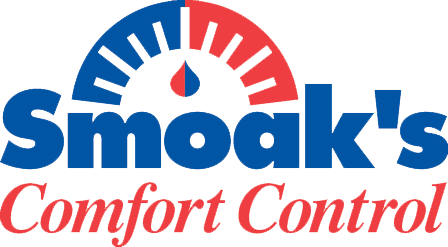As the holiday season approaches, the excitement of vacation planning often takes center stage. Amidst the hustle and bustle, preparing your HVAC system before heading out is crucial. Properly readying your HVAC system can improve your home’s energy efficiency and ensure a seamless return to a comfortable home. In this article, we’ll explore some DIY steps to prepare your HVAC system before leaving for holiday vacations, providing you with peace of mind and potential energy savings..
1. Adjust Your Thermostat
Setting your thermostat to an energy-efficient temperature is a simple yet impactful step before leaving for vacation:
• Winter Vacations: If you’re heading out during the winter, lower your thermostat to a temperature that prevents freezing pipes while still conserving energy. A suggested range is around 50-60°F.
• Summer Vacations: For summer vacations, raise the thermostat temperature to reduce unnecessary cooling. A range between 80-85°F is a good recommendation.
Utilizing a programmable thermostat allows you to automate these adjustments, making it convenient to optimize energy use based on your absence.
2. Check and Replace Air Filters
Clean air filters contribute to optimal HVAC system performance and energy efficiency:
• Dirty Filters Impact Efficiency: Clogged and dirty air filters can hinder airflow, forcing your HVAC system to work harder and maintain the desired temperature. Before leaving, check and replace air filters to ensure efficient operation.
• Consider High-Efficiency Filters: If you plan an extended vacation, consider using high-efficiency air filters. These filters capture smaller particles, providing cleaner air and potentially extending the life of your HVAC system.
3. Repair & Replace Air Ducts
Ensuring unobstructed airflow is essential for proper HVAC operation:
• Check Vents for Blockages: Inspect air vents to ensure furniture, curtains, or other items do not block them. Unobstructed vents promote efficient air circulation.
• Consider Ductwork Repair or Replacement: If it has been a while since your ductwork has been replaced, or if you notice reduced airflow, consider ductwork repair or replacement. New ductwork can contribute to improved indoor air quality and system efficiency.
4. Seal Leaks and Insulate
Preventing drafts and maintaining insulation levels can impact energy efficiency:
• Seal Leaks Around Windows and Doors: Gaps and cracks around windows and doors can contribute to heat loss or gain. Seal these openings with weatherstripping or caulking to improve insulation.
• Add Insulation: If your home lacks proper insulation, consider adding insulation to the attic or walls. Adequate insulation helps maintain a consistent temperature and reduces the workload on your HVAC system.
5. Schedule HVAC Preventative Maintenance
Before your vacation, consider scheduling preventative maintenance:
• Routine Maintenance: A professional HVAC technician can thoroughly inspect your system, identifying potential issues and ensuring all components are in good working order.
• Inspect, Clean, Test, and Calibrate Components: Preventative maintenance on your HVAC system can help keep your system and its components running effectively, enhance efficiency, and prevent unnecessary stress on the unit.
• Address Potential Issues: Address any issues identified during the maintenance visit to prevent them from escalating into major, expensive problems in your absence.
6. Install a Smart Thermostat
Investing in a smart thermostat offers additional control and convenience:
• Remote Temperature Adjustment: Smart thermostats allow you to monitor and adjust your home’s temperature remotely using a smartphone. This flexibility ensures you can adapt to weather conditions or unexpected schedule changes.
• Energy Usage Insights: Many smart thermostats provide insights into your HVAC system’s energy usage. You can use this information to make informed energy conservation and efficiency decisions.
7. Unplug Non-Essential Electronics
Reducing energy consumption goes beyond the HVAC system:
• Unplug Electronics and Appliances: Before leaving, unplug non-essential electronics and appliances. Many devices continue to draw power even when turned off, contributing to “phantom” energy consumption.
• Use Smart Power Strips: Consider using smart power strips that automatically turn off the power to devices when not in use to eliminate standby power consumption.
8. Secure Windows and Doors
Enhance your home’s security while also improving energy efficiency:
• Close and Lock Windows and Doors: Securely lock the windows and exterior doors by deterring potential intruders and helping maintain a more consistent indoor temperature.
• Use Draft Stoppers: Place draft stoppers at the base of doors to prevent cold air from entering and warm air from escaping.
9. Inform a Trusted Neighbor
Communication is essential to addressing unexpected issues:
• Inform a Neighbor: Let a trusted neighbor know about your vacation plans. We recommend providing them with contact information in case of emergencies or any issues that require immediate attention.
• HVAC System Monitoring: If you have a smart thermostat or home automation system, consider granting access to your neighbors for remote monitoring and allowing them to address any HVAC-related concerns promptly.
Preparing your HVAC system before leaving for holiday vacations is a proactive approach to ensuring a comfortable return and maximizing energy efficiency. By following these steps, you contribute to energy savings and create a secure and well-maintained home environment, whether escaping to warmer climates or embracing a winter wonderland, the peace.
Need further assistance? Our HVAC professionals in Mount Pleasant and the surrounding areas can help you with various HVAC services, including repairs, system replacements, and preventative maintenance. Contact us today at (843) 556-9550 or request an appointment online by completing our service request form.

